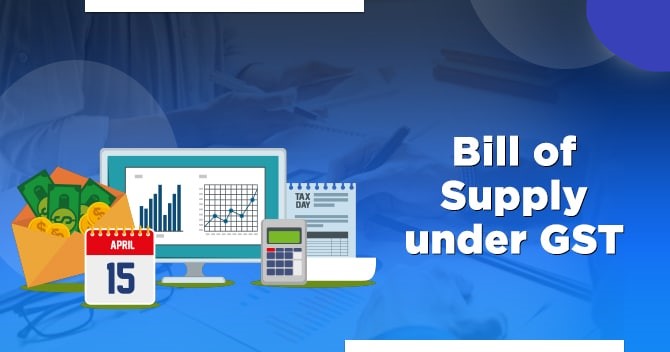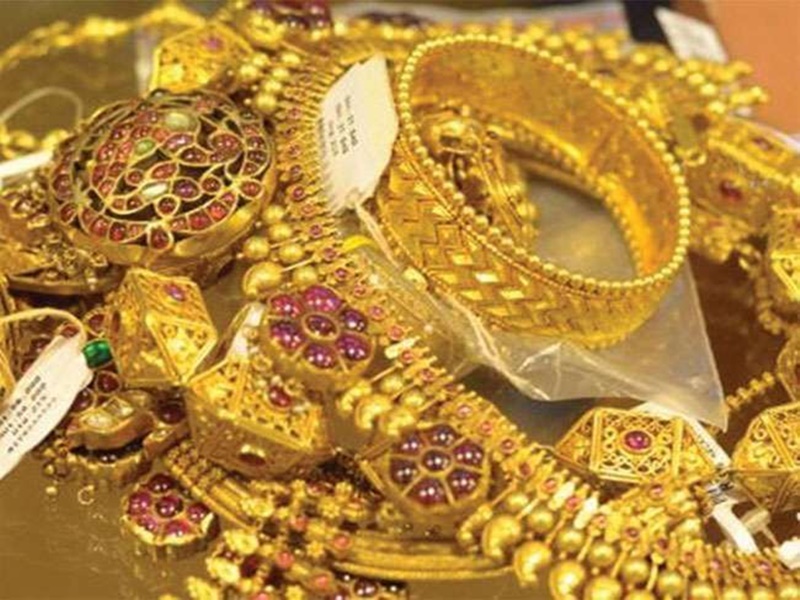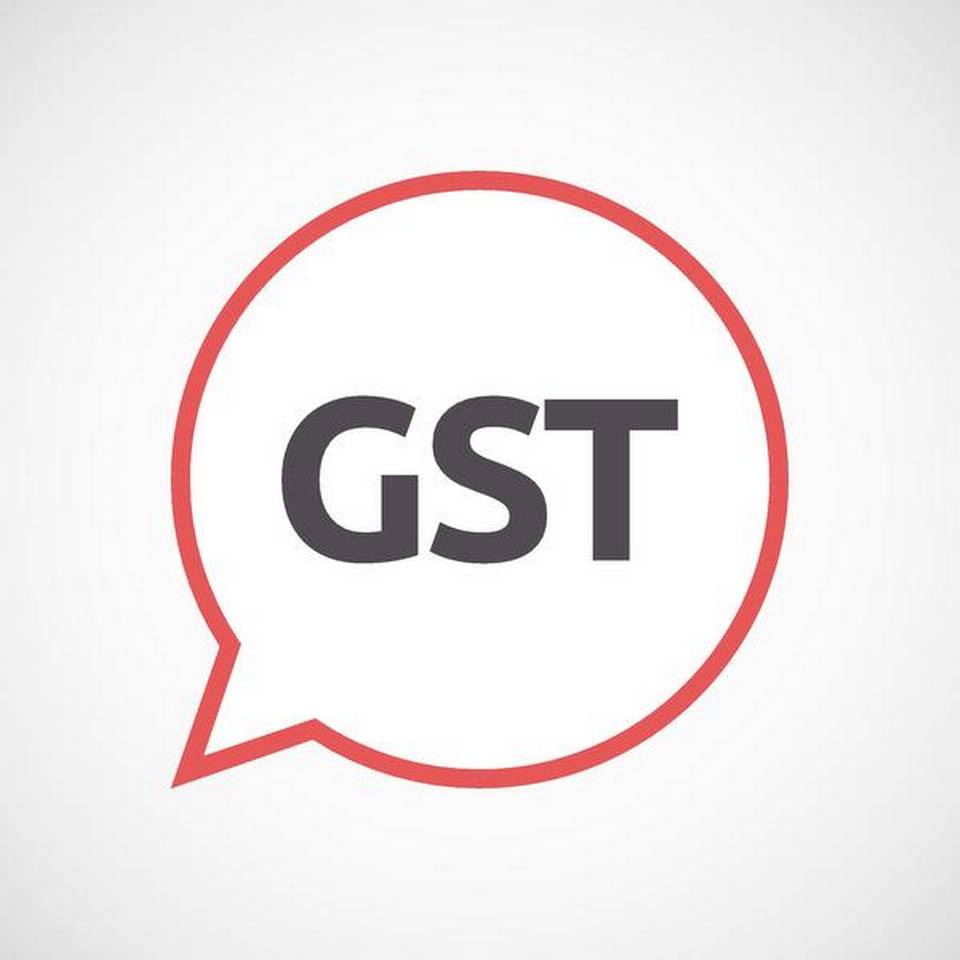1. Introduction
Bill of Supply is a new invention of GST Law as there was no such requirement under the erstwhile indirect tax laws viz Service Tax, VAT, Central Excise Duty etc. The requirement to issue Bill of Supply is contained in Section 31(3)(c) of the CGST Act,2017 which mandates that a registered person supplying exempted goods or services or both or paying tax under the provisions of section 10 (Composition dealer) shall issue, instead of a tax invoice, a bill of supply.
Further machinery provisions in regard to issue of bill of supply are contained in Rule 49 of the CGST Rules, 2017.
2. Who are required to issue Bill of Supply:
In light of Section 31(3)(c) of the CGST Act,2017 the Bill of Supply is to be issued in following cases:
a) Registered person supplying exempted goods or services
Bill of Supply is required to be issued in case of exempt supplies. It is important to note here that exempt supply has been defined under Section 2(47) to mean:
- supply of any goods or services or both which attracts nil rate of tax or
- which may be wholly exempt from tax under section 11, or under section 6 of the IGST Act, and
- includes non-taxable supply.
Lets discuss each of three components as under:
i)NIL rated supply
NIL rated supply means, whose rate is mentioned as NIL in the rate notification issued under GST Law. The following notifications have been issued in regard to rate of GST applicable:
| 01/2017-Central Tax (Rate),dt. 28-06-2017* (as amended) | Rate of tax on goods. No NIL rated goods mentioned in the notification. |
| 11/2017-Central Tax (Rate), dt. 28-06-2017* (as amended) | Rate of tax on services Only one NIL rated supplies mentioned in the Notification which is support services to agriculture, forestry, fishing, animal husbandry. (Heading 9986). |
*Similar Notifications issued under other GST Act(s).
ii) Whole exemption from GST
As per Section 11(1) of the CGST Act, 2017 (and similar Sections in other GST Act(s)), the Government has the powers to grant exemption from GST either absolutely or subject to certain conditions, by means of notification, to specified goods or services or both. In exercise of these powers following notifications have been issued:
| 02/2017-Central Tax (Rate),dt. 28-06-2017* (as amended) | For exemption of goods |
| 12/2017-Central Tax (Rate), dt. 28-06-2017* (as amended) | For exemption of services |
*Similar Notifications issued under other GST Act(s).
iii)Non taxable supply
As per Section 2(78) of the CGST Act,2017 “non-taxable supply” means a supply of goods or services or both which is not leviable to tax under this Act or under the IGST Act. Examples of non taxable supply are supply of alcoholic liquor which is out of ambit of GST as per the charging Section 9(1) of the CGST Act, 2017. Further the five petroleum products which are temporarily out of GST law as per Section 9(2) of the CGST Act, 2017 also form part of the non taxable supply.
Accordingly in case the supplier supplies the goods or services which are NIL rated, wholly exempted or are non taxable as discussed above, cannot charge GST and thus tax invoice cannot be issued. Instead a Bill of Supply shall be issued in such cases.
Tax invoice issued under other Act be regarded as Bill of Supply for non taxable supply
As discussed above, non taxable supply being part of exempt supply, bill of supply will be required to be issued by such supplier. However a dispensation has been provided to such supplier under second proviso to Rule 49 of the CGST Rules, 2017 which states that tax invoice or any other similar document issued under any other Act for the time being in force in respect of any non-taxable supply shall be treated as a bill of supply for the purposes of the Act.
b. Persons registered under Composition Scheme
Persons who are registered under composition scheme under Section 10 of the CGST Act, 2017 wherein they need to pay concessional rate of tax, that too on quarterly basis. As per the conditions of the scheme, the GST on outward supplies needs to be paid by such persons from their own pocket and cannot be charged onto the customers. Accordingly such persons cannot issue tax invoice and need to fall back on the ‘Bill of Supply’.
3. Bill of Supply may not be issued if value is less than Rs 200/-
As per proviso to Section 31(3)(c) of the CGST Act,2017, a registered person may not issue a bill of supply if the value of the goods or services or both supplied is less than two hundred rupees subject to such conditions and in such manner as may be prescribed. As per Rule 49 of the CGST Rules, 2017 which provided machinery provisions in regard to Bill of Supply no specific conditions / manner has been mandated for non issuance of Bill of Supply where value is less than Rs 200/-
4. Contents of Bill of Supply
A bill of supply referred to in section 31(3)(c) of the CGST Act, 2017, shall be issued by the supplier containing the following details, namely,-
(a) name, address and GSTIN of the supplier;
(b) a consecutive serial number not exceeding sixteen characters, in one or multiple series, containing alphabets or numerals or special characters -hyphen or dash and slash symbolised as “-“ and “/” respectively, and any combination thereof, unique for a financial year;
(c) date of its issue;
(d) name, address and GSTIN or UIN, if registered, of the recipient;
(e) HSN Code for goods or services;
(f) description of goods or services or both;
(g) value of supply of goods or services or both taking into account discount or abatement, if any; and
(h) signature or digital signature of the supplier or his authorised representative.
It is important to note here that the signature or digital signature of the supplier or his authorised representative shall not be required in the case of issuance of an electronic bill of supply in accordance with the provisions of the Information Technology Act, 2000.
It has further been provided that the provisos to rule 46 (Tax Invoice) shall, mutatis mutandis, apply to the bill of supply issued under this rule. Basically this would cover the requirement for mention of HSN Code which will be uniform for tax invoice and bill of supply.
5. Timing of issue of Bill of Supply
It is important to note here that though GST law prescribes time limit for issuance of tax invoice, however specific time limit for issuance of bill of supply have not been prescribed. Thus we need to fall back on the time limits of issue of tax invoice for issue of bill of supply as well and issue the same accordingly. The due date / prescribed time limits of issuance of tax invoices are given in the table below which can be used for issuance of bill of supply as well.
| Section of CGST Act | Situation |
| 31(1) | Supply of goods |
| 31(2) + Rule 47 of CGST Rules, 2017 | Supply of Services. |
| 31(4) | Supply of continuous supply of goods. |
| 31(5) | Supply of continuous supply of services. |
| 31(6) | Supply of services ceases under contract before completion of supply |
| 31(7) | Supply of goods on sale on approval basis. |
6. Requirement of QR code on Bill of Supply
Fourth proviso to Rule 49 of the CGST Rules, 2017 was inserted vide Notf no. 31/2019 – CT dt. 28.06.2019 with effect from a date to be notified later. This proviso provided that the Government may, by notification, on the recommendations of the Council, and subject to such conditions and restrictions as mentioned therein, specify that the bill of supply shall have Quick Response (QR) code.
It may be noted here that though mentioning of QR code on bill of supply has not yet been enforced. However in regard to tax invoices, as per Notification No. 14/ 2020- Central Tax dated 21st March, 2020 (as amended) in cases where the aggregate turnover of a supplier in any earlier financial year (2017-18 to 2019-20) exceeds Rs 500 crore, he shall be required to have a dynamic QR code displayed on B2C invoices raised by him. This requirement is now applicable from 1st December, 2020 as per Notification No. 71/ 2020- Central Tax dated 30th September, 2020.
Further where the supplier makes a dynamic QR code available through a digital display, such B2C invoice issued by such registered person containing cross-reference of the payment using dynamic QR Code , shall be deemed to be having QR Code.
Further certain class of registered persons (insurance company, banking company, financial institution, non-banking financial institution, GTA, passenger transportation service, etc.) are exempted from issuing e-invoices or capturing dynamic QR code.
***
[rainbow]Don’t miss the next GST Update / Article / Judicial pronouncement[/rainbow]
Subscribe to our newsletter from FREE to stay updated on GST Law
Resolve your GST queries from national level experts on GST free of cost.
Frah Saeed is a law graduate specializing in the core field of indirect taxes and is the Co-founder of taxwallah.com. She has authored many publications on GST and is into full-time consultancy on GST to big corporates. She as a part of taxwallah.com heads a team comprising of Chartered Accountants and Advocates and plays a key role in our mission to disseminate GST knowledge to all.




